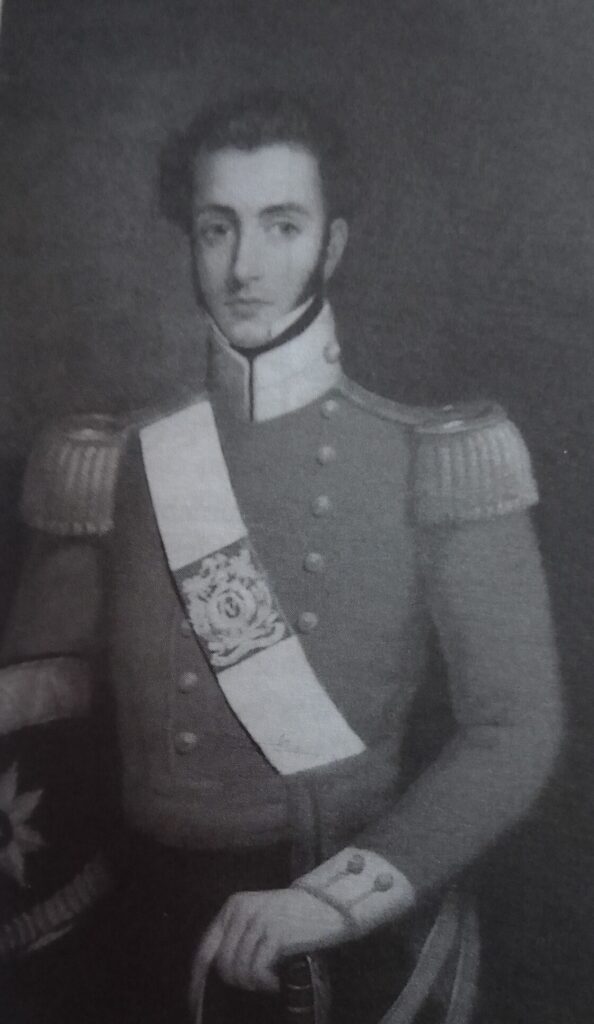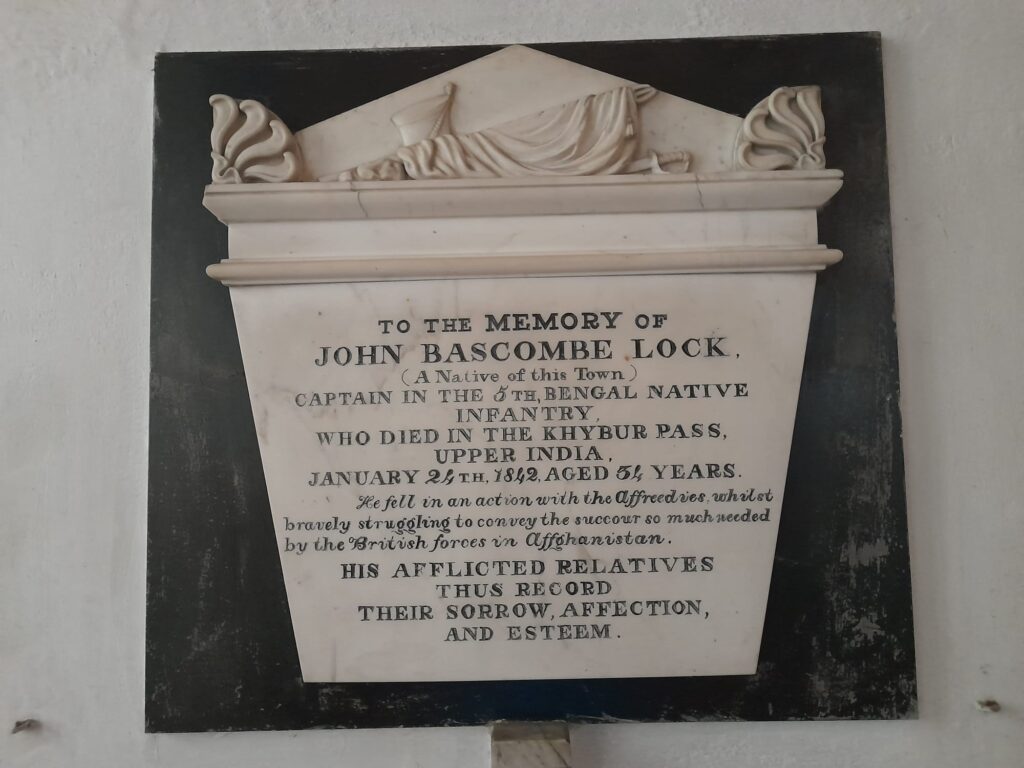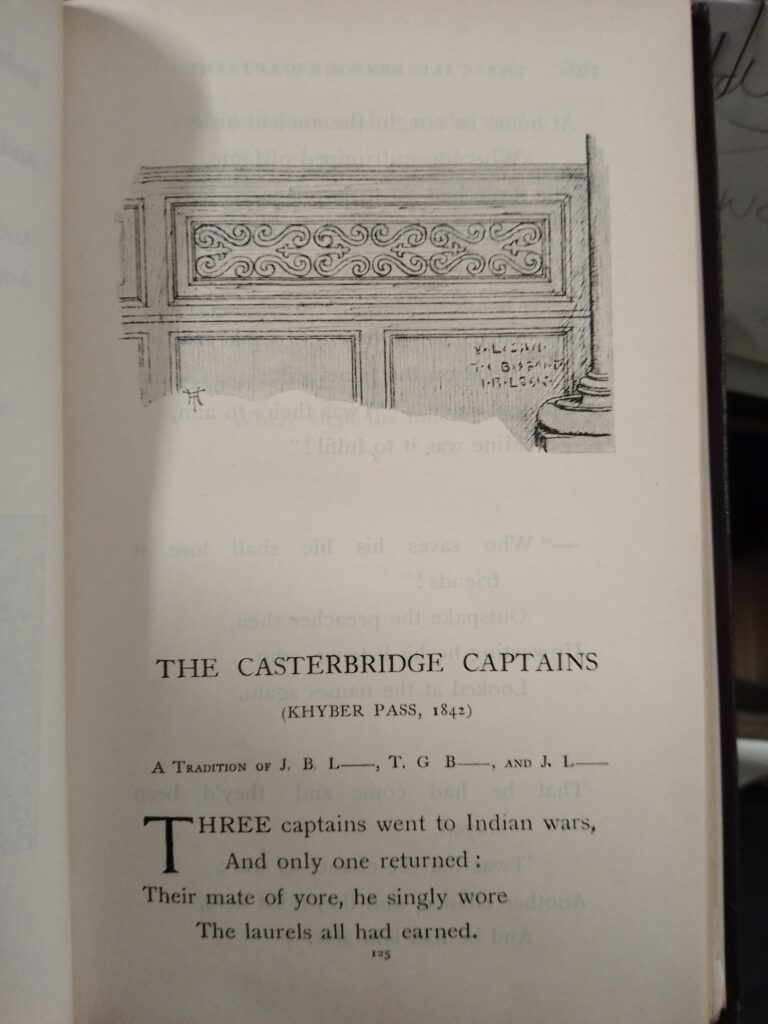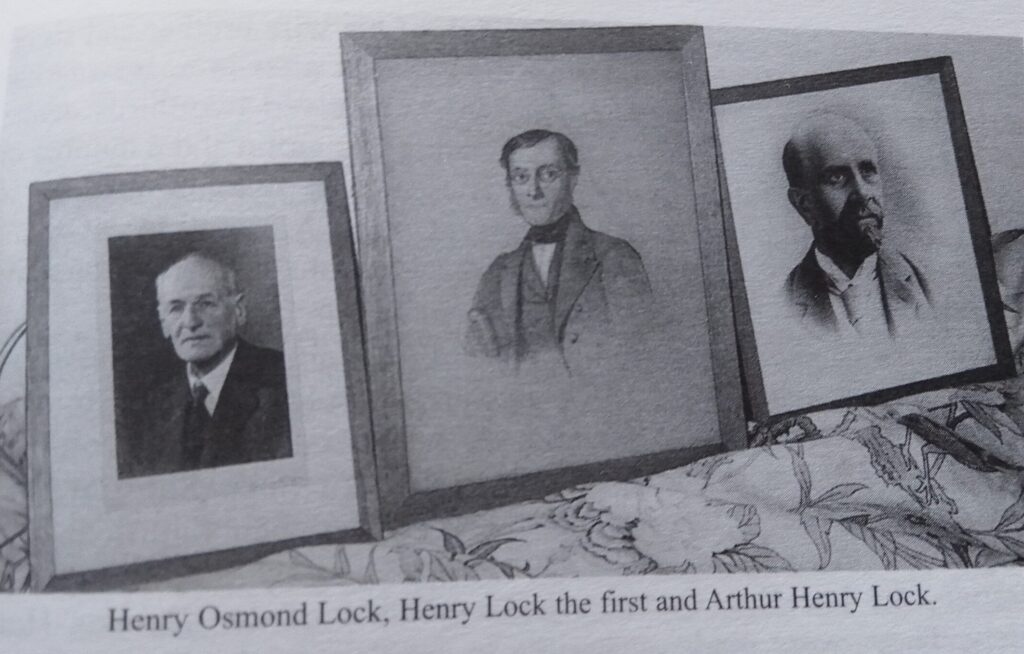Welcome to the seventh part of our series exploring the history of Icen Cottage, Fordington. In previous blogs, we have introduced you to the cottage, shown you some of the earliest documents relating to the cottage, discussed some of the problems when trying to identify the people who lived in the cottage, introduced George Cull as one of the previous owners, taken a look at the Mitford family and Arnold family in the 1830s; and explored the lives of the Wickham family who lived in the cottage.
This time we’ve found out more information about the next incumbents of the cottage, the Lock family and their connections to Thomas Hardy…
—
William Lock, a retired butcher and coal merchant of Dorchester, moved into Icen cottage some time between 1841, when the census records the property as being empty, and 1846, when he appears in the Poor Rate book. On the 1851 census his daughter Elizabeth and granddaughter Mary, the daughter of his son George, are living with William along with a servant, Sarah Wallis.
William appears to have been very successful in his businesses. All of the 12 children that he had with his wife, Anne Brown Bascombe, seem to have been educated. His daughter, Elizabeth, set up a school in Icen Cottage, which we will explore in a later blog and among his sons there was a solicitor, soldier, merchant and a chairman of a gas company.
The family also had connections with Thomas Hardy and this is what we are going to focus on in this blog.

In 1842 William’s son John Bascombe Lock, who had joined the Bengal Army in 1825, was killed at the Khyber Pass in what is now Afghanistan. He was 35 years old and left behind a wife, Jane, and an infant son, Gelert. There is a wall tablet dedicated to him in St Peter’s Church, Dorchester.

John was one of three men from Dorchester who left to fight in the conflict and only one of these, Thomas Henry Gatehouse Besant, returned. Unfortunately, despite our best efforts, we have not managed to discover anything about the other man who lost his life in the war beyond the name J. Logan. If anyone knows anything else about him we would love to know more, so please do get in touch.
Thomas Hardy was only 2 when John Bascombe Lock died, but he obviously heard the story of these three men as he wrote a poem about them, ‘The Casterbridge Captains’. The poem was published in Wessex Poems in 1898 and was accompanied by an illustration of the back of a pew from All Saints Church, Dorchester, into which the names of these men had been carved, according to the poem by them when they were boys. The pew no longer exists having been removed when the church was re-seated.

After John Bascombe Lock’s death, his widow and son returned to Dorset, where her sister Sarah May married one of John’s younger brothers, Henry. Henry Lock qualified as a solicitor in 1835 and founded the Dorchester based firm eventually known as Lock, Reed and Lock. This firm was passed from father to son for four generations and among the firm’s clients was Thomas Hardy. Henry also served as Mayor of Dorchester in 1858 and 1876.

Thomas Hardy knew and corresponded with Henry, his children and his great grandchildren and the Thomas Hardy collection that we hold here at the History Centre includes documents donated to the Dorset County Museum by Henry Osmund Lock. A more detailed account of the relationship between Thomas Hardy and the Lock family written by William’s great great grandson Henry Lock can be found in Volume 18, No.1 of The Thomas Hardy Journal.
In our next blog we will be giving a more general account of what life in Fordington would have been like for those living at Icen Cottage in the 19th century.
—
Images of John Bascombe Lock and Henry Lock are taken from ‘Thomas Hardy and the Locks: A Lock Family Chronicle’ by Henry Lock, published in Vol 18, No. 1 of the Thomas Hardy Journal.
—
If you’ve missed the earlier blogs in this series, you can view them here:
An Introduction to Icen Cottage
Icen Cottage – The Earliest Documents
Icen Cottage – The Masters Family – Too Many John Masters!

